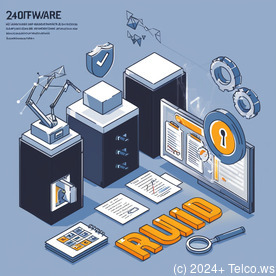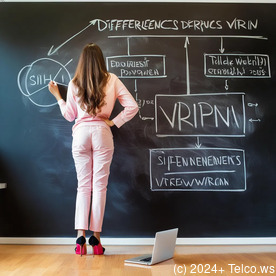
Exploring Google Cloud Platform (GCP)




Introduction to Google Cloud Platform
Google Cloud Platform (GCP) is an extensive and versatile cloud computing service offering from Google, providing a myriad of infrastructure, application, and platform services that run on the same infrastructure Google utilizes for its own end-user products, such as Google Search, Gmail, and YouTube. As part of its service suite, GCP includes computing power with Google Compute Engine, scalable storage with Google Cloud Storage, data analytics capabilities with BigQuery, and machine learning frameworks through AI Platform. The cloud environment helps companies leverage the latest technologies without the need for extensive on-premises infrastructure. GCP is critical for businesses seeking operational efficiency in an era increasingly defined by digital transformation. With GCP, companies can innovate with agility and scale their services seamlessly, responding rapidly to market needs.




Economic Impact of GCP
From an economic perspective, GCP transforms how organizations manage their financial resources by providing a model that minimizes initial capital expenditures. The ability to scale resources up or down based on actual usage helps businesses avoid the pitfalls of over-provisioning or underutilizing their infrastructure. Small and medium-sized enterprises (SMEs) particularly benefit from GCPs accessible pricing model, which enables them to implement cutting-edge technologies that can level the playing field against larger competitors. Furthermore, GCPs ecosystem fosters innovation by providing tools and services that enable enterprises to experiment and deploy new applications quickly. This rapid deployment reduces time-to-market for products and services, which is essential in todays fast-paced economy. Ultimately, GCP allows organizations to improve operational efficiencies and consequently enhances profitability.




Political Context and Regulation of Cloud Services
In the political arena, GCP operates under the scrutiny of a growing framework of laws and regulations aimed at protecting data privacy and user rights. Governments globally are enacting legislation, such as the General Data Protection Regulation (GDPR) in Europe or the California Consumer Privacy Act (CCPA) in the United States, which place stringent obligations on cloud service providers regarding data handling and user consent. Such regulations influence how businesses choose cloud partners and shape consumers trust in cloud-based solutions. GCP has proactively addressed these concerns by ensuring compliance and enacting strong encryption and data protection measures. Additionally, the political discourse surrounding cloud services often branches into topics like data sovereignty, where countries express the desire to keep data stored locally. GCP addresses these challenges by establishing data centers in various regions worldwide, allowing clients to choose where their data is physically housed, further aiding compliance with local laws.




Social Considerations and Cloud Adoption
Socially, GCP drives considerable change in workplace dynamics and organizational culture. The flexibility provided by cloud computing enables businesses to facilitate remote working environments, which has gained prominence, particularly in a post-pandemic world. Through tools like Google Workspace, teams can collaborate in real-time from anywhere, communicate seamlessly through Google Meet, and maintain simultaneous edits in Google Docs and Sheets. This capability fosters inclusivity and diversity, as organizations can hire talent without geographical restrictions. Furthermore, GCP places a strong emphasis on accessibility, ensuring that their services are usable by people with disabilities. This alignment with social values not only enhances employee satisfaction but also portrays organizations as socially responsible in the eyes of their consumers and stakeholders, driving positive public perceptions.




Environmental Perspective
From an environmental perspective, GCP is a leader in sustainability within the tech industry. Google has committed to operating its data centers with 100% renewable energy, significantly reducing its carbon footprint. By leveraging advanced technologies for energy efficiency, such as liquid cooling and AI-driven resource allocation, Google minimizes energy consumption while maximizing performance. Organizations that choose GCP not only adopt a cloud service but also contribute to a larger movement toward sustainability in technology. This trend aligns with the growing consumer demand for environmentally-friendly practices, allowing businesses to enhance their brand reputation. Embracing cloud computing through GCP as a sustainable option provides a dual benefit: operational efficiency alongside positive environmental impact.




Technological Innovations and Features
The breadth of technological innovations offered by GCP is vast. It includes state-of-the-art computing services like Google Kubernetes Engine (GKE) for container orchestration, which allows organizations to automate, scale, and manage application containers across clusters of machines, enhancing efficiency and infrastructure management. Additionally, GCPs Big Data solutions, including Dataflow and Dataproc, enable enterprises to process and analyze extremely large datasets efficiently, delivering critical insights for strategic decision-making. The AI capabilities of GCP are equally impressive; using AutoML and TensorFlow, businesses can create customized machine learning models tailored to specific business needs, democratizing data science. Furthermore, security measures are deeply integrated, with multi-layered protections including identity management and data encryption practices that contribute to building consumer trust in cloud services.




The Business Perspective
From the standpoint of business strategy, GCP is instrumental in enabling companies to become agile in their operations. The platforms ability to provide insights through analytics and machine learning enables businesses to drive smarter decisions. As companies migrate legacy systems to GCP, they are often able to employ advanced automation and DevOps practices, reducing time and resources needed to manage infrastructure. The alignment of GCP with emerging digital trends, such as Internet of Things (IoT) integration and real-time analytics, allows organizations to innovate continually and maintain competitive advantages. Moreover, with the extensive partner ecosystem that GCP supports, businesses have the flexibility to use various tools and services, ensuring that they can tailor their technology stack to their precise requirements and thus enhance overall business performance.




Conclusion and Future Outlook
In conclusion, an in-depth analysis of Google Cloud Platform illustrates its multifaceted potential to facilitate transformation across economic, political, social, technological, and environmental aspects. As organizations increasingly digitize their operations, GCP remains a cornerstone in achieving operational excellence and innovation. The future of GCP appears promising, with ongoing advancements likely to bring forth new features that cater to evolving business needs, thus continuously reshaping the cloud computing landscape. Enterprises that adopt GCP today are positioning themselves strategically to leverage emerging opportunities while dynamically navigating future challenges in a digital-first world.
Unlock the Potential of Google Cloud Platform Today!
Interested in knowing more? Feel free to contact us at www.telco.ws via email, phone, or through our online form. If youre ready to harness the power of Google Cloud Platform, the price for our comprehensive consulting services is $1,200. Please proceed to our Checkout Gateway and use our Payment Processor to pay the indicated amount of $1,200 in favor of our Company. After completing your payment, kindly reach out to us with the payment receipt and your details to arrange your GCP solutions. Thank you for your interest!
